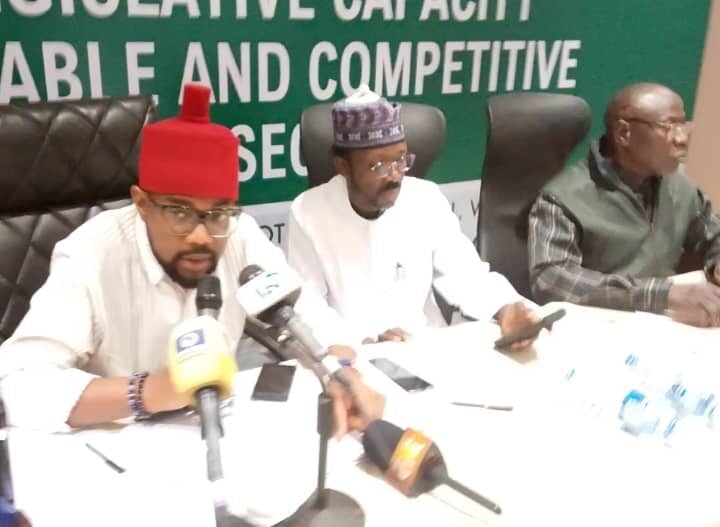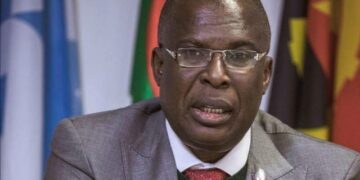The House of Representatives Committee on Petroleum Resources (Downstream) has pledged to wade into the lingering face-off between the Dangote Group and the Nigeria Union of Petroleum and Natural Gas Workers (NUPENG) with a view to ensuring stability in the sector and fairness to all stakeholders.
The resolution followed the end of a three-day retreat in Lagos where lawmakers, industry players and regulators deliberated on pressing issues facing Nigeria’s downstream petroleum sector.
Chairman of the committee, Hon. Ikenga Imo Ugochinyere, told reporters that the panel would not allow disputes between major investors and unions to derail operations or undermine the quest for energy security.
Ugochinyere said the committee was determined to mediate and bring both parties to the table before the matter escalates further.
“Our priority is to deliver real reforms that guarantee efficiency, fairness and competitiveness across the board. We are going to step in to ensure that no stakeholder feels sidelined or shortchanged.”
The retreat also reviewed ongoing challenges facing local refineries, particularly their difficulties in securing reliable crude supply.
Lawmakers called for greater transparency in the allocation and pricing of crude oil to ensure that both state-owned and modular refineries can operate sustainably.
On the lingering controversy surrounding the Nigerian National Petroleum Company Limited’s (NNPCL) acquisition of OVH Energy’s downstream assets, Ugochinyere confirmed that the committee’s reinvestigation was already at an advanced stage, stressing that the fresh probe was distinct from the earlier inquiry, which was rejected on the floor of the House.
Ugochinyere explained that while some stakeholders had failed to submit critical documents, the committee had resolved to move forward regardless, noting that the House mandate must be carried out in full.
Members of the public, he said, were free to make submissions to the Clerk of the committee before presenting recommendations.
During the retreat, the committee commended the Nigerian Midstream and Downstream Petroleum Regulatory Authority (NMDPRA), the Dangote Refinery, modular refinery operators and other key players for their efforts and investment in building a viable downstream sector.
Lawmakers also welcomed the NNPCL’s renewed drive to revamp operations, especially at the Port Harcourt Refinery.
Sub-committee reports are expected in the coming weeks and will form the basis for legislative action on crude supply, refinery upgrades and regulatory oversight.
Analysts said the retreat and subsequent investigations could set the stage for a more transparent and competitive downstream landscape, while also easing tensions between labour and private operators.





